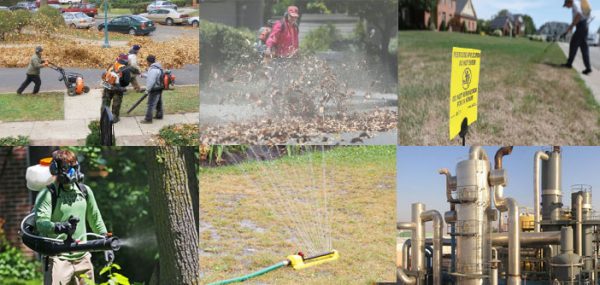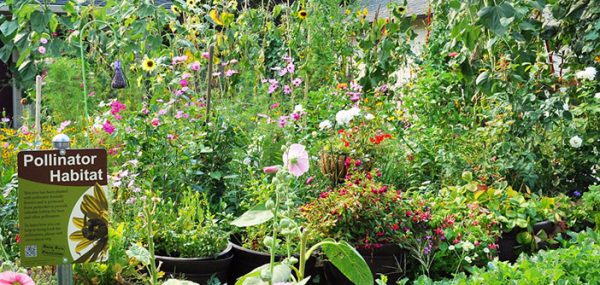What are Healthy Yards?
Our Organization
Healthy Yards is an organization committed to help people change from harmful yard practices, which produce greenhouse gases and endanger wildlife, to healthy yard practices, that do exactly the opposite. For many of these practices we depend on the landscaping business. It is our responsibility as homeowners to tell our landscapers, that we want healthier yards.
Fearing for their livelihood, some landscapers might be reluctant to change. But there is no need for fear, there are plenty of sustainable practices that can be offered as valuable alternatives for any conventional practice.
This website is designed to share those healthier alternatives so that we, collectively, can build sustainable landscapes that support humans, wildlife and our environment.

From here to…

here!
An Unhealthy Business
The landscaping industry, with its more than a million workers, relies almost completely on the running of gasoline operated engines. It is estimated that in the coming years the greenhouse gas emissions of the landscaping industry in California will surpass that of all passenger cars in that state. Countrywide we use 30% of our valuable drinking water for yard irrigation. We further apply billions of gallons of chemical toxins, of which the 30 most commonly used, have known or suspected neuro-toxic properties, or can possibly impact the endocrine and reproductive system, or can cause cancer, birth defects and organ damage. Chemical fertilizers, mostly used for lawns, cause serious problems in our waterways, and produce a great amount of greenhouse gasses. And finally, our conventional landscaping is so poor in natural planting that it decreases biodiversity and makes our landscape susceptible for drought and flooding. We can no longer allow this type of landscaping to continue. It has to change.
Healthier Yards
The good news is that changing our landscaping practices is easy and do-able. It requires only a few steps to obtain a healthier yard. And each of the steps, whether it is limiting your lawn, planting native plants or mulching your leaves already offer great benefits. All the steps have an impact on the biodiversity, green house gas emissions or carbon storage.
